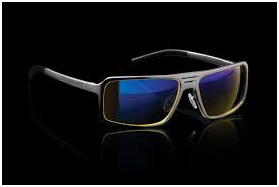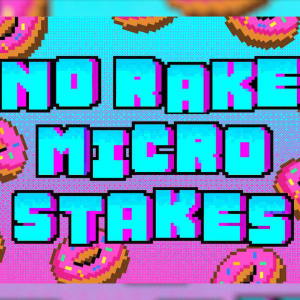Don't want to give away valuable information at the tables? Consider masking your live poker tells. First you need to learn about them and how to identify yours!
There is a
range of information that is available to live players which is not available to online players. It's true that making use of tells is very important for online players but the variety and
frequency of tells in a live environment is much higher. Online players look primarily at betting-speed and bet-sizing whereas the list of live tells is far longer.
In order for our opponent not to gain a competitive edge against us, we need to make sure that our tells are carefully concealed. We can refer to this concept as “masking”. When we have complete control over our tells we may even be able to broadcast them intentionally as a means of deception.
Awareness of Tells

The reasons why players so often fail to conceal their tells is that they are simply not aware of them. Most players are aware of the basic tells such as the eyes and mouth and go to great lengths to conceal them. It's very common for players to wear sunglasses and to cover their mouth with their hands for example.
However many of the other types of tell go completely unnoticed. And if we don't notice them, we simply will not be aware that we should be masking them. The following is a list of potential ways that our opponent can pick up tells, along with masking suggestions to help us avoid giving away information unintentionally.
Card Apex
The card-apex refers to
the first time a player checks his hole cards. It is divided into three stages: the onset, the apex, and the offset. The apex refers to that period of time that a player is checking his cards, while onset and offset refer to the act of picking up and putting down the cards.

The general idea with most poker tells is that players have a tendency toward acting quickly when they have a very easy decision. This usually occurs when they are either very strong or very weak. It's the mid-strength hands that generally require a little more thought and hence the player takes a little longer to make his decision.
So if we see a player staring at his cards for a longer period of time then normal, there is a pretty good chance he does not have AA, unless he is trying to fool us. There is also a reasonable chance he doesn't have 23o because in most cases he will take one quick glance and then fold preflop.
It's important to remember that all tells are individualised. So what might be a short card-apex for one player might be a longer card-apex for another player.
The average card-apex will be less than 2 seconds, so if we see a player gazing at his cards for longer than this
there is a reasonable chance that he has a speculative hand rather than a very strong or very weak hand.
The way we defend against this is by evening out our own card-apex. So next time we pick up AA we don't want to glance for half a second and immediately offset our cards. We should possibly be staring a little longer at our cards. This way it's a more balanced when compared to those times when we have a speculative hand and feel we need to stare at the cards for a little longer to help us remember them.
Card Rechecks
We can also learn a lot from how frequently a player checks his cards. Similar to the previous tell, constant card rechecks rarely indicate a very strong or a very weak hand. In most cases players will constantly recheck their cards when they have some sort of decision. If a players check their cards preflop and sees that they have AA, they will rarely be rechecking throughout the course of the hand.

It may not be overly important how often we want to check our cards.
The important thing is that we are consistent. So if we want to check our cards on every street, this can be fine,
but we need to do it with all holdings, not just some. So if we check our cards frequently when we have a speculative hand, we also need to check our cards when we know that we have the nuts and have no need of checking our cards. We must obviously keep our card-apex the same length when doing this. Our opponents might know if we are simply pretending to check our cards.
As a general rule, the less often we check our cards, the less information we risk giving away.
The best idea is to try and memorise our cards along with the suits when we check them for the first time. If we do this properly then we won't need to recheck our cards at any point.
Keep in mind that once we are closing the action on the last street, it usually doesn't matter how frequently we recheck.Hesitation
Hesitation can occur for a variety of reasons, but in most cases
it is usually connected to indecision and uncertainty. We have to
observe our opponents carefully to understand whether this hesitation is related to the strength of their hand. For example a player might have a clear decision preflop but is simply confused about the amount of money that is in the pot, and so he hesitates.
Usually the reason for hesitation will be given away through the player's body language.
If a player hesitates before putting chips in the middle, it usually means his decision is close. And if his decision is close, it again means that he rarely has a very strong hand or a very weak hand. We should usually not give any indication of hesitation when putting chips into the pot.
Sometimes we will genuinely have a decision however, so it's important we don't act super fast when we have an easy decision. We should slow down our actions here too. We simply need to avoid giving any obvious indication that we are unsure of our decision.
Timing Tells
Similar to all previous tells, players often show a tendency to act quickly when they have an easy decision and act slowly when the situation is closer.
We can't force ourselves to act quickly when the decision is close, so it's necessary for us to slow down our decisions when the best play is obvious. Keep in mind that this should be done within reason. It can be considered bad etiquette to “
hollywood” for an extremely long period of time with a hand that is an easy continue. Remember that there are other players at the table who would prefer to play poker rather than watch you sit there with a blank expression on your face for the next 10 minutes.
Chip Tells
There are a number of ways we can give information to our opponents via the way we use our chips. Firstly the way we put chips into the pot can indicate the strength or weakness of our hand. The most common take on this is that if an opponent puts his chips into the pot forcefully he is more likely to be weak, whereas if he places his chips into the pot timidly, there is a greater chance he has a strong value hand. As we mentioned earlier many tells are highly individual and we won't always know what an opponent does with his chips without observing him for a while first. He might do the exact opposite with his chips. But even if this is the case, we should be able to pick up on this and eventually exploit him.

There is a lot we can do here to send out false information to our opponent.
This is referred to as “reverse-tells”, where we deliberately try to make use of fake-tells to indicate to our opponent that we are either weak or strong. But since we are primarily talking about masking for the time being,
we should be putting our chips into the pot the same way each time so as to give no information.
This is not the only tell that we can give with our chips. It's understandable that players get bored during a long session and like to make model boats, planes and castles from their chips.
There is a chance that non-essential tricks with your chips could be costing you money. While the majority of us do not attempt to make award-winning sculptures mid session, many players will shuffle their chips along with a few other chip tricks. While this may flow below the radar of non-observant opponents, the tempo with which we shuffle our chips can be giving away tells. It's easily possible to get excited and impatient with a big hand and shuffle our chips faster.
We might get nervous
when we are bluffing and stop shuffling our chips entirely. We wouldn't even notice we were doing something like this. If we knew we would obviously stop immediately, because the advantage we are potentially giving to our opponent is absolutely huge.
So while it can be very tempting to play around with chips we have to ensure that it genuinely is random. And making something random intentionally is very difficult for the human brain. It might be better for us if we don't play with our chips at all, or only play with them when we are not involved in a hand.
Gazing
Most poker players wear sunglasses because they are concerned that opponents might stare into their eyes and read their soul. Most are aware of the idea that pupils become dilated when an individual is fearful.
However picking up such tells are not as common as we might imagine. Most of the information we give away is to do with the direction of our gaze. Perhaps we intuitively glance at our chips when we hit a big flop. Perhaps we also start counting our opponent's chips, which is something we might not do unless we are faced with a commitment decision. Perhaps we are gazing at nothing in particular and signalling that we have already subconsciously given up on the hand and we will be folding to further action.

The great advantage to sunglasses is that we get to be less careful with what we do with our eyes. We could glance at our chips, or our opponents chips, or recheck the flop
texture and there is a reasonable chance no-one would know. So why don't all pros wear sunglasses?
Firstly remember that once we conceal our eyes we also deny ourselves the opportunity to give out any reverse-tells. Also keep in mind that in some environments it can be considered bad-etiquette. For example, imagine you go around a family members house for dinner, would you sit at the table wearing your sunglasses?
Certain softer poker games or home games can be similar. Wearing dark glasses can be unnecessarily intimidating and destroy the friendly environment. Remember that if we have a big edge over the table, it's in our interests that our weaker opponents feel comfortable and that the game can continue for longer.
If we assume a situation where we have shoved all-in on the river, there is usually no need for us to continue looking at either the board or the chip stacks. But we have to put our eyes somewhere, assuming we are not wearing glasses. It doesn't always matter where we place our gaze, but it should be the same place each time.

Sometimes players make the mistake of not doing this. There are generally two places a players eyes might end up. They might stare directly at the opponent, or they might deliberately try to avoid eye contact. The most common take on this is that
if a player is staring right at you, it's an intimidation tactic. He is weak and he wants you to fold, but he is staring at you confidently in an attempt to appear strong.
However if that player is avoiding eye contact it's for the opposite reasons. He doesn't want you to be intimidated. He wants to convey the idea that he is timid, weak, or nervous, but in reality he is strong. Perhaps he is worried that if he looks straight at us we will be intimidated into folding when he has a strong value hand.
We can also pay attention to how frequently our opponent's blink. Sometimes when a player is running a big bluff, he is so conscious of the fact that he needs to keep still that he even stops blinking. Usually if he is more relaxed he is going to be blinking at regular intervals.


 The great advantage to sunglasses is that we get to be less careful with what we do with our eyes. We could glance at our chips, or our opponents chips, or recheck the flop texture and there is a reasonable chance no-one would know. So why don't all pros wear sunglasses?
The great advantage to sunglasses is that we get to be less careful with what we do with our eyes. We could glance at our chips, or our opponents chips, or recheck the flop texture and there is a reasonable chance no-one would know. So why don't all pros wear sunglasses? 

